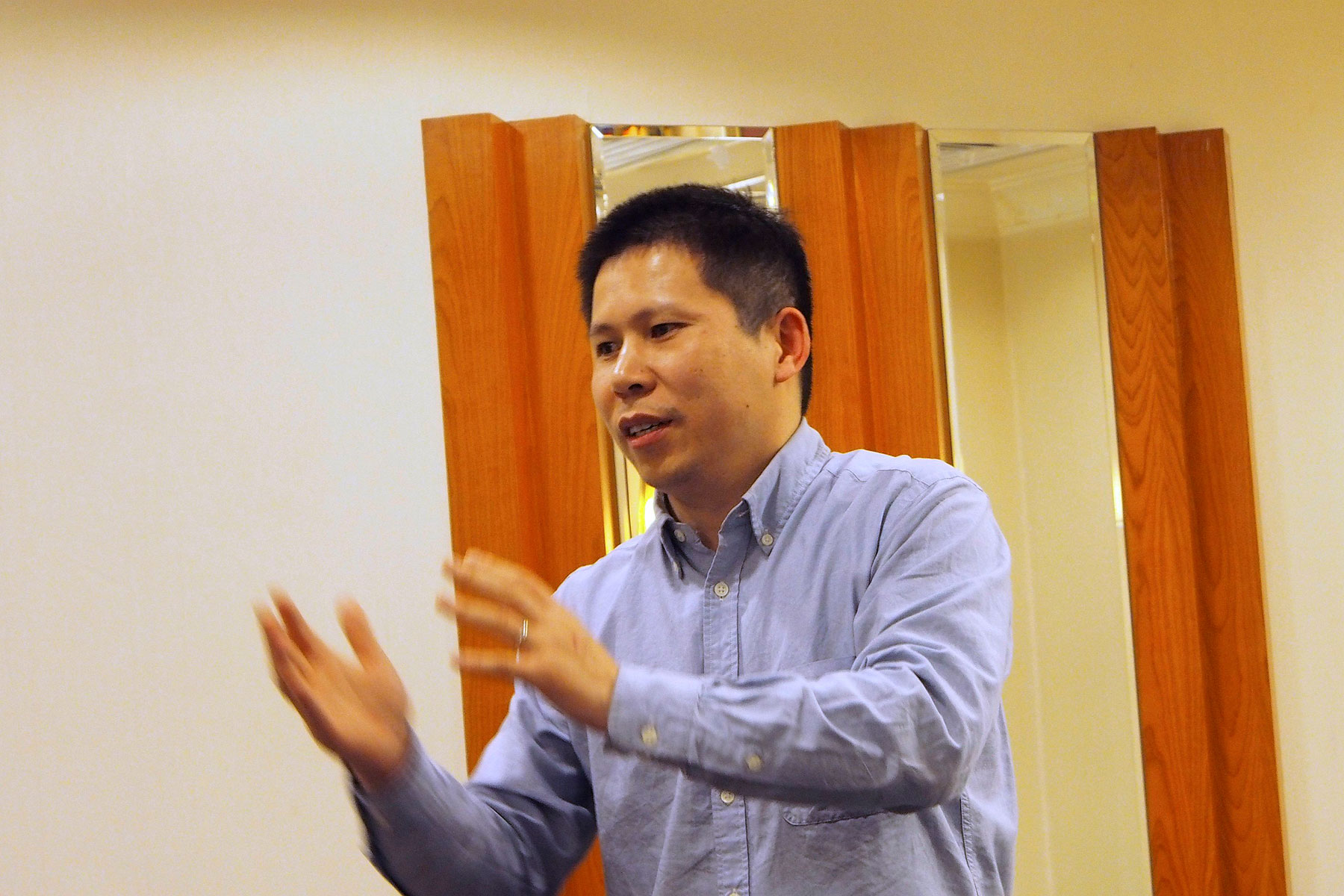
On the eve of a ruling meant to stamp them out, a Chinese civic group sent the government a message: We’re still here.
The group, known as the New Citizens Movement, is a loose network of rights campaigners, legal activists and ordinary people that gather at informal dinner parties and push for government transparency. On Friday morning, a Beijing court upheld a guilty verdict against one of the group’s founders, lawyer and activist Xu Zhiyong — but not before his allies launched a Website for the movement, and a Hong Kong publisher released his sure-to-be-banned autobiography.
The defiant moves come after a string of trials meant to stop the movement cold. Over the last year, dozens of people affiliated with the network have been detained, and several jailed. At a closed-door trial in January, Xu was convicted on charges of “gathering crowds to disrupt public order” and sentenced to four years in prison. (Xu stayed silent throughout to protest proceedings he likened to “a piece of theater.”) This week, three other members of group — Ding Jiaxi and Li Wei and Zhao Changqing — were in court on the same charge. Ding and Li’s lawyers walked out in protest.
Xu and his colleagues do the kind of work the government should, in theory, support. Xu is a lawyer who investigated the Sanlu tainted-milk scandal and advocated for the rights of migrant children — things the state backs. Participants often meet over meals — “Change China by eating,” goes one motto — or campaign online by, for instance, posting pictures of themselves holding placards. “The message was quite inclusive: ‘We are going to change society together,'” says Maya Wang, of Human Rights Watch.
But the swift and comprehensive crackdown suggests only one group can push for change: the Chinese Communist Party. Since coming to power, and even immediately beforehand, President Xi Jinping has made fighting graft his signature, promising to target tigers (top officials) and flies (rank-and-file bureaucrats). Stories about the government’s corruption-busing campaigns feature prominently in the state-controlled press. When the three activists from Jiangxi posted photos of themselves holding a sign that called for officials to disclose their assets, however, they were detained. “The Party wants to appear to be the reformers, and they are showing that they will not be pushed by civil society,” says Wang.
Indeed, since China’s once-in-a-decade leadership transition the Xi Jinping’s regime has taken a hard line on critics, real and perceived. Authorities have rounded up bloggers and businessmen and implemented new rules governing speech on the Internet. In February, police detained Ilham Tohti, an ethnic Uighur scholar, for “inciting separatism,” a charge which could carry the death penalty. Rights groups have challenged the case, and his daughter this week discussed it with U.S. lawmakers. “He is exactly the sort of person a rational Chinese political structure would seek to engage in order to address the conditions of the Uighur people,” she told the Congressional-Executive Commission on China.
Even with the space for speech narrowing, people are vowing to push back. At his closed-door court appearance on Friday, Xu spoke out against the handling of his case and promised to continue his work. “This ridiculous judgment cannot hold back the tide of human progress,” he told the court, his lawyers told Reuters. “The haze of the communist dictatorship must eventually lift and the light of freedom, fairness, justice and love will eventually fill China.”
Another prominent member of the New Citizens Movement, Xiao Shu, whose real name is Chen Min, dismissed the notion that the movement had been crushed. “It is not dead,” he said in a phone call from New York City, where he will spend a year at Columbia University. Xiao Shu compared the network to a tree: “Although the tree has been cut down, the seeds of the tree have been blown all over, and will produce more trees.”
—with reporting from Gu Yongqiang in Beijing
More Must-Reads from TIME
- Donald Trump Is TIME's 2024 Person of the Year
- Why We Chose Trump as Person of the Year
- Is Intermittent Fasting Good or Bad for You?
- The 100 Must-Read Books of 2024
- The 20 Best Christmas TV Episodes
- Column: If Optimism Feels Ridiculous Now, Try Hope
- The Future of Climate Action Is Trade Policy
- Merle Bombardieri Is Helping People Make the Baby Decision
Write to Emily Rauhala / Beijing at emily_rauhala@timeasia.com